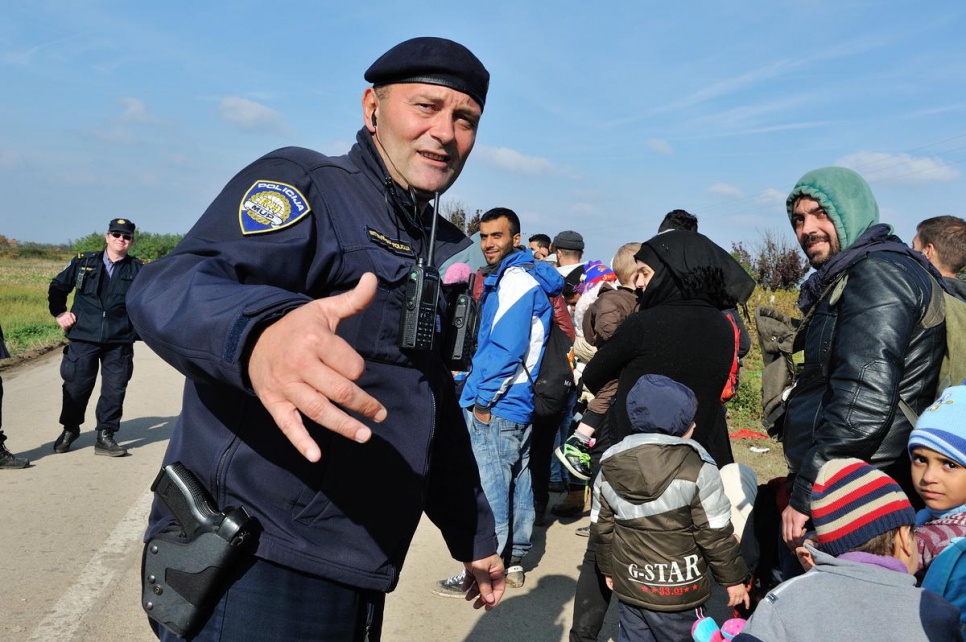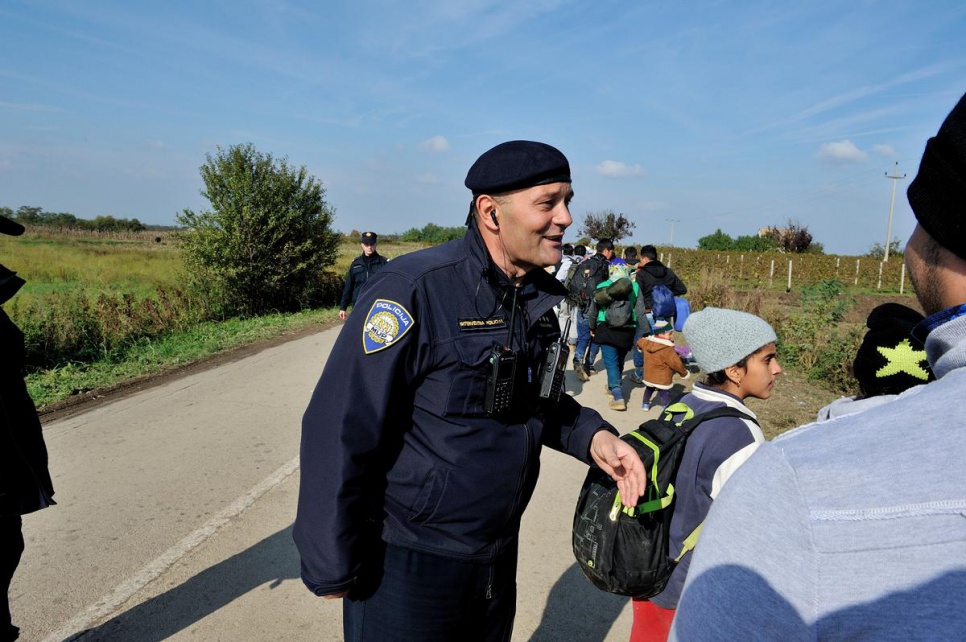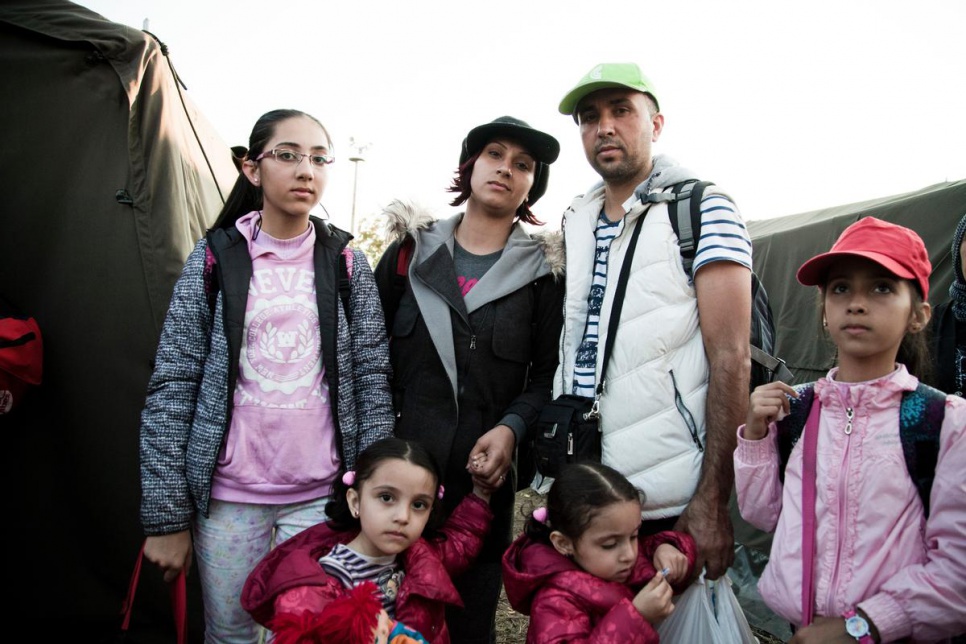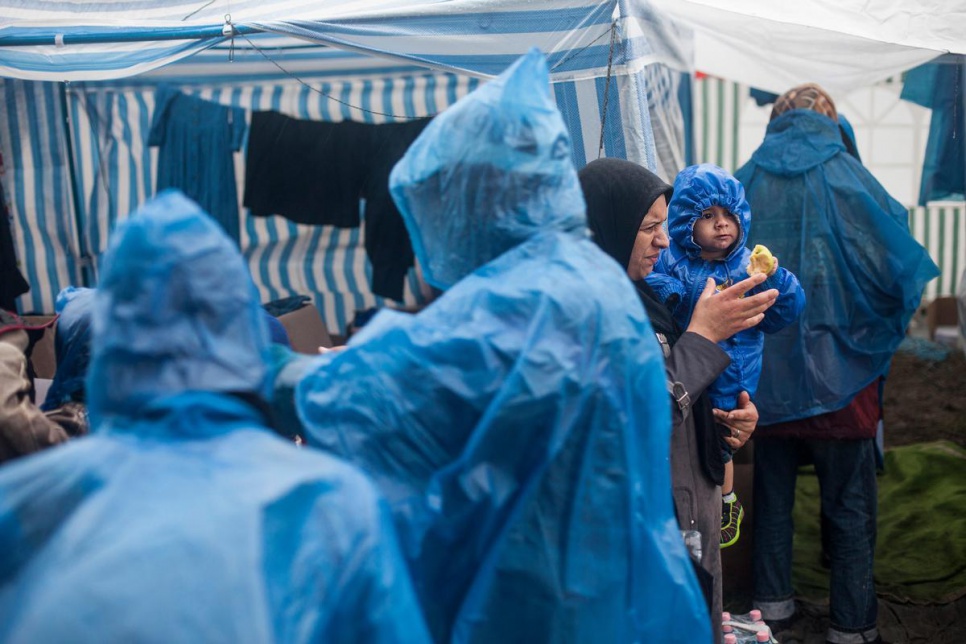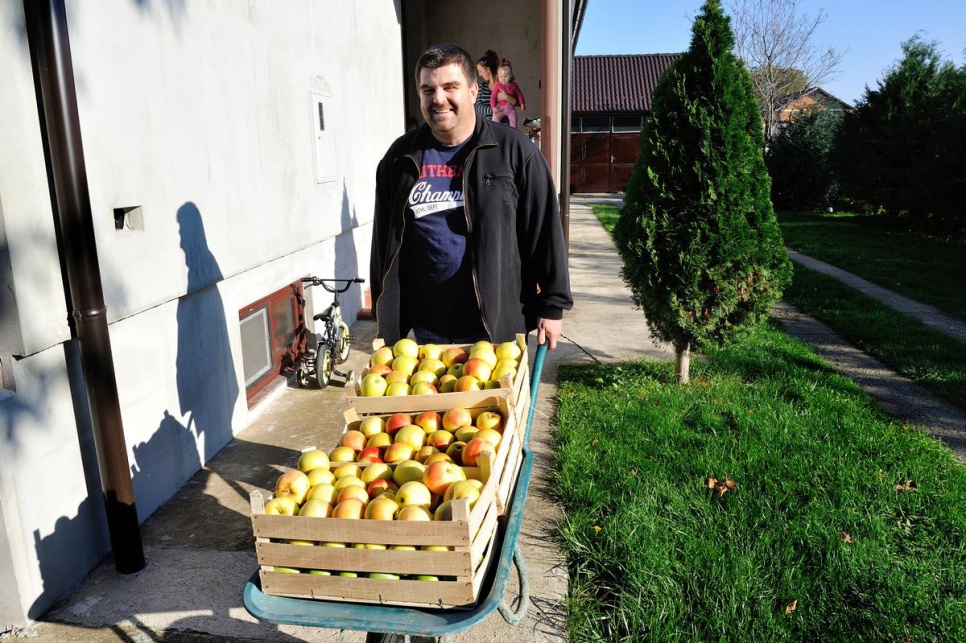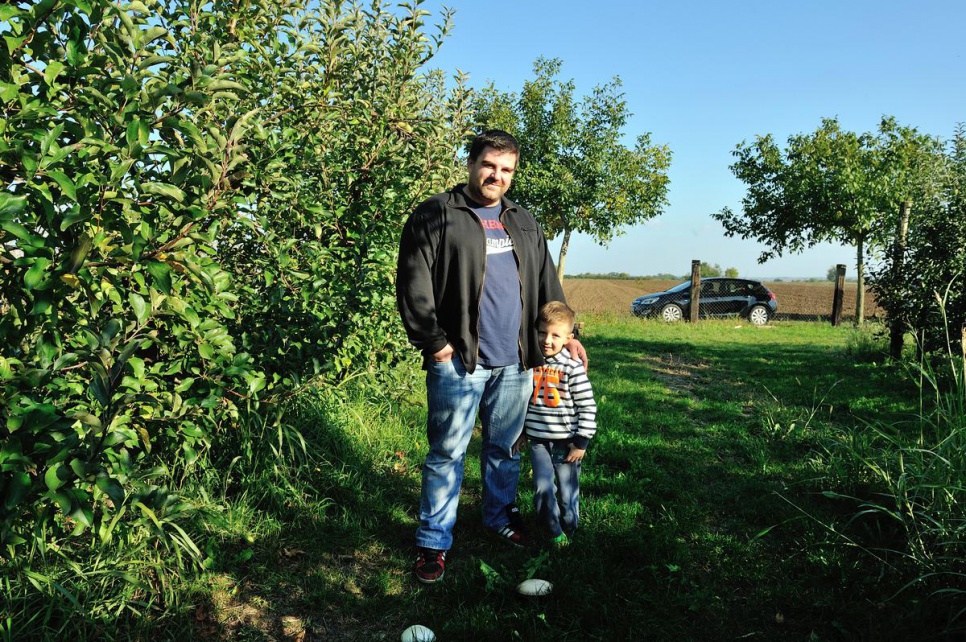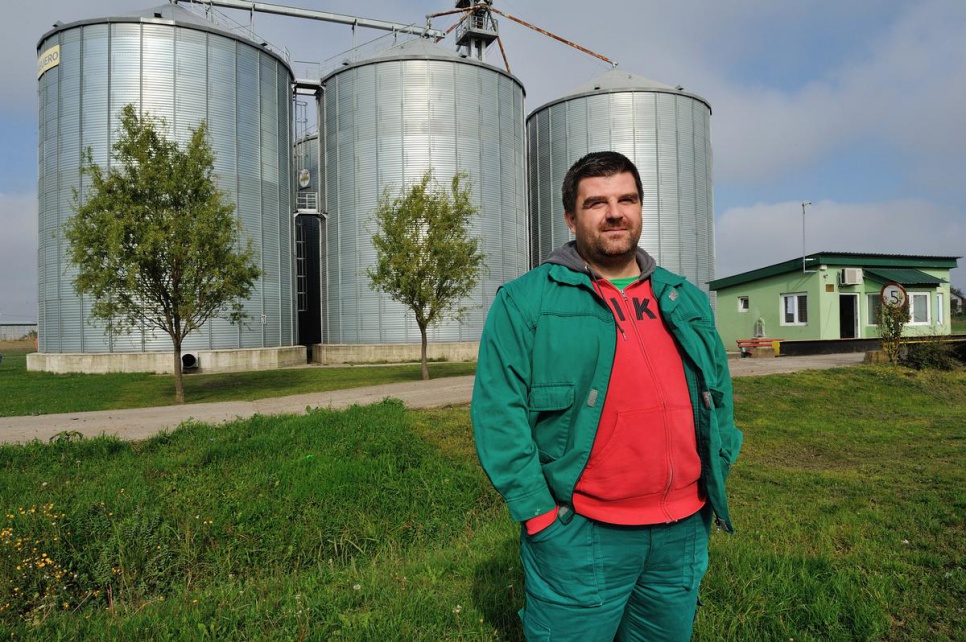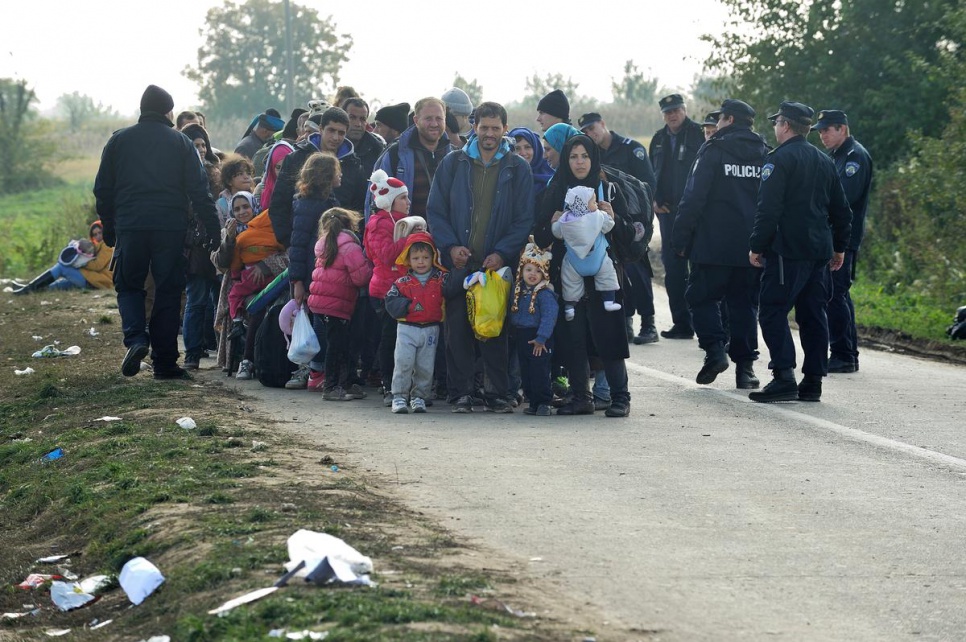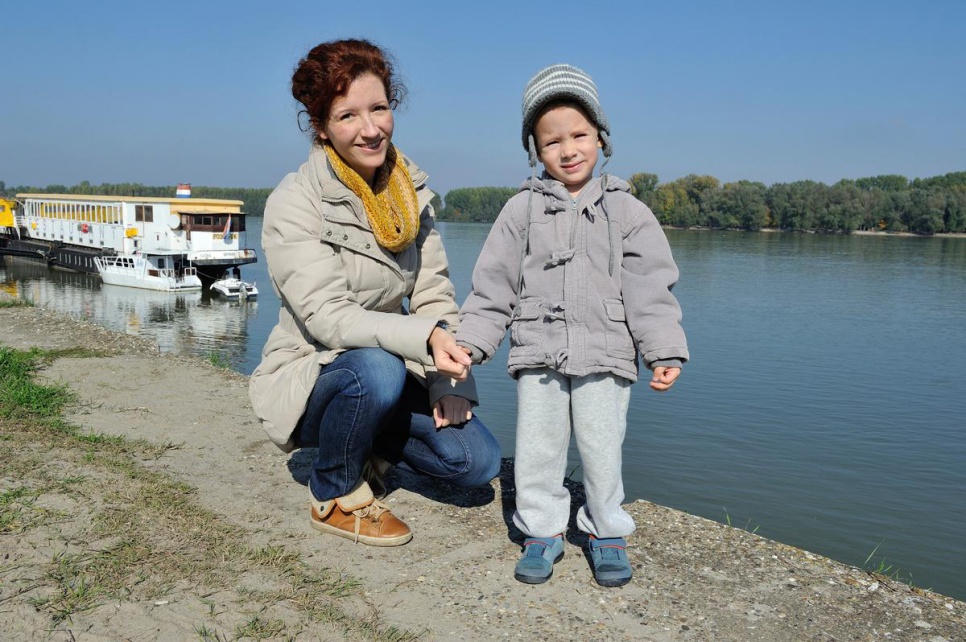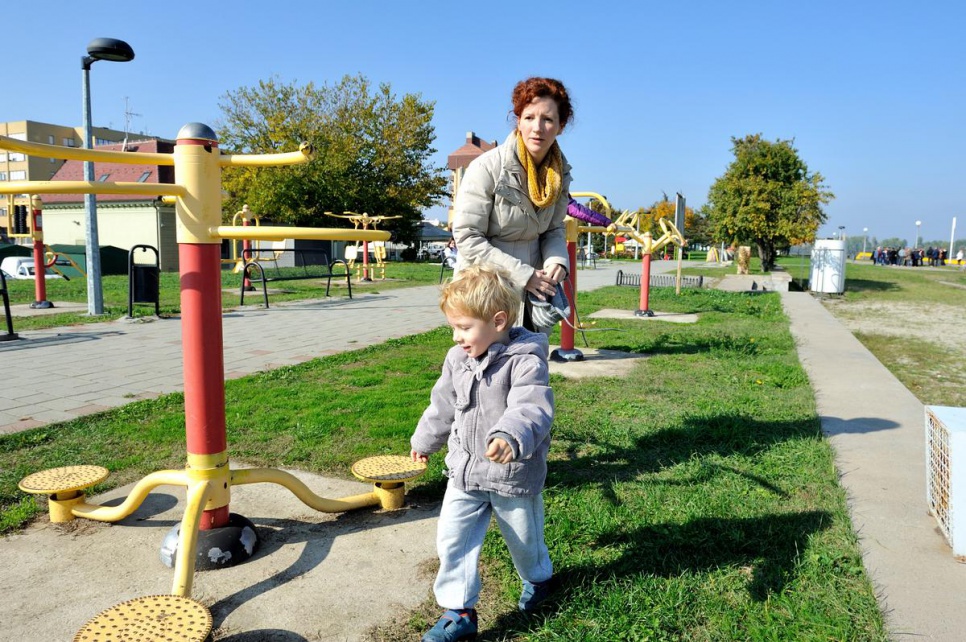Once a refugee, now a helping hand
A police commander, a farmer and a teacher who once fled war in the Balkans are among those helping refugees and migrants crossing into Croatia.
Zoran Grgic meets refugees near the Croatian village of Opatovac.
© UNHCR/Mark Henley
Darkness is falling in Opatovac, the first Croatian village after the border crossing between Croatia and Serbia. Fatigue shows in the eyes of humanitarian workers, volunteers and police officers. Many of them work long hours, sometimes 16 hours non-stop, to assist thousands of refugees and migrants desperately searching for safety.
Colleagues on the night shift will soon come and replace them so that they can get some rest. But empathy and solidarity is stronger than exhaustion.
Some of the humanitarian workers, volunteers and police officers were refugees themselves 24 years ago. Then war raged across the Balkans. In Croatia they still remember the help they received from UNHCR when they themselves fled in search of safety.
These are the stories of four of them – a police commander, the head of the local Red Cross, a farmer and a German teacher. They all know exactly what their help means to today's refugees.
Zoran Markovic – Police Commander
Police Commander Zoran Markovic, 45, has been at the border from day one of the refugee crisis with his team, working shifts of 16 hours, seven days a week. He was a young man when the war started in Croatia.
"Twenty-four years ago, my village was occupied and my parents had to flee in a matter of hours," he tells me when we meet at Opatovac transit centre. "If something like that happens to you, you can never forget it. It sticks with you and it is deep in your memory. People were in the same queues like here. The world was watching like the world is watching now."
Zoran and his team work tirelessly to ensure that refugees arrive safely at the reception centre in buses provided by the Croatian authorities.
"I feel that I am here to help these people who flee today," he continues. "They all have the same problem, no matter if they come from Syria, Iraq or Afghanistan. Today, both Serbs and Croats live again together, like before the war. I wish the same will happen to the people who are fleeing now."
Even now, 24 years on, Zoran's memories of his own family's displacement are still fresh and, as a husband and a father, he is more determined than ever to offer the men, women and children a warm welcome.
"I understand solidarity. Today, it is our turn to show it."
"People really helped my parents. They were sharing their meals with them and all the donations they received they were sharing them all together. I understand solidarity. Today, it is our turn to show it."
Miodrag Hillic – Farmer
When Miodrag Hillic, 34, first saw the refugees arriving in Croatia, he immediately thought back to the moment that conflict forced him from his own home. The year was 1991 and he was just 10 years old.
"In 1991, after the school year ended, my parents sent me to Volvodine in Serbia with my sister," he remembers. "We stayed until December when the situation was less volatile. There were fewer shootings, but we had problems because my mother is Croat. When the war ended, we had problems because my father is Serb. When I see the refugees today, images come back."
As a former refugee, Miodrag's first instinct was to help.
"It was natural for me to help them," he tells me, from the farm where he works in Tovarnik. "I made a decision on my own to give apples, but when I came home and told my family they all agreed. I gave 1.5 tons of apples. My harvest is 50 tons per year. This is the way I was raised, to help others."
The family also donated some of the children's old clothes.
"This is the way I was raised, to help others."
Miodrag lives a pleasant and peaceful life with his wife and three children. He hopes that refugees arriving in Europe will one day have the same chance.
"Today, we live all peacefully again together," he says. "I hope they will also be able to go back home one day."
Lana Mayer – German Teacher
Lana Mayer, 35, knows only too well how it feels to be refugee. In 1991, at the age of 11, war forced her to flee her home.
"We fled to Germany and we stayed there six years," she says. "When I arrived, teachers at school gave us clothes. Other children were asking us why they were giving us clothes. I was ashamed because I had nothing."
Now, as a mother and a German teacher, Lana is determined to welcome today's refugees. But she is not alone.
"Many people still remember the war here and because of that they have more empathy and they want to help," she says. "The younger generation doesn't have this experience. They may be afraid. They don't know what it is all about. But people over 30 have experienced being refugees and want to help."
She hopes that European governments will pull together to offer refugees decent accommodation, access to education and other social services.
"When we came to Germany, we were brought to temporary structures as asylum seekers," she remembers. "It was great at first but became terrible after some months with humidity. When I think of that, I hope people will be accommodated in better structures."
"I can go and teach them Croatian, German or English."
Lana knows the importance of integration, but is all too aware of how difficult some may find it. "Fleeing from one part of Europe to another part of Europe was difficult enough to adapt," she says. "They come from a different culture."
But that's not stopping her coming up with ideas of how she can help families feel part of local life. "I can go and teach them Croatian, German or English," she says, smiling. "To make them feel better."
Zorica Grgic – Head of Croatian Red Cross
Zorica Grgic, 63, was forced to flee Vukovar when war broke out in 1991. All of the men in her family were killed, but she escaped to Austria with her daughter. In 1997, with UNHCR's help, she returned to Vukovar, where she is now the head of the Croatian Red Cross and working around the clock to help recently arrived refugees.
"The situation here is very hard for me," she says. "It brings images back of me, my family and when we had to flee Vukovar. It is very emotional, but it gives me strength to help the refugees. I understand what they are going through and what they need. My entire life is now devoted to helping people."

"In 1991, I had to flee Vukovar. When I see these people, I see myself when I had to leave my house," says Zorica Grgic, head of the local Red Cross in Vukovar. © UNHCR/Mark Henley
And it is UNHCR that inspires her. "UNHCR had a great role in Vukovar," Zorica recalls. "Fuel, blankets, food, flour – everything was given by UNHCR. There was no water. Everything had been destroyed. We depended on humanitarian assistance. Whenever I see UNHCR representatives, my heart is full of thanks and gratitude. And now I see UNHCR again."
Today, UNHCR works tirelessly to help the refugees who arrive in Croatia, partnering with Zorica's Red Cross to deliver much-needed assistance, including clothes and medical services as well as reuniting family members.
"Whenever I see UNHCR representatives, my heart is full of thanks."
Despite the long hours and exhausting work, Zorica's determination knows no bounds.
"My role model is Mother Teresa," she says with a smile, referring to the Nobel Peace Prize laureate who worked in the slums of Calcutta. "When it is hard for me, I remember her and what she did for the people in need. It gives me strength. What I learnt is that solidarity is the basis for a normal life – not only for me but the entire community."

